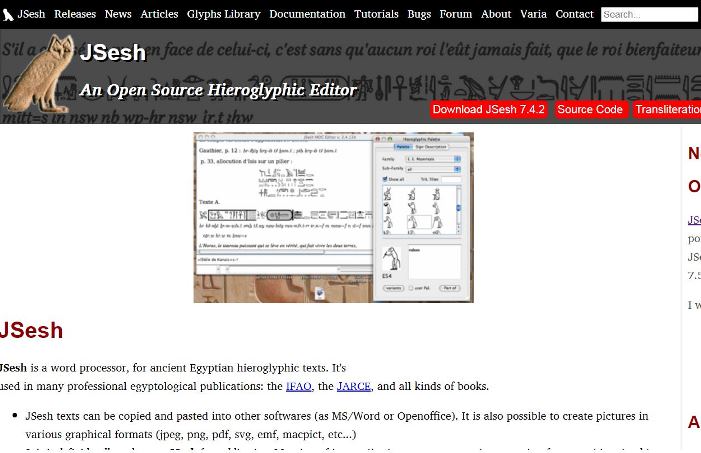

#JSESH TUTORIAL MAC OS#
Unix variants, such as FreeBSD, OpenBSD, NetBSD, SunOS/Solaris, HP-UX, IRIX, AIX,Īnd Mac OS X. Software that runs on GNU/Linux systems will usually run on other I'm most likely to know about such software because GNU/Linux is what I use most With occasional exceptions the software listed runs on GNU/Linux systems. It does, and you can make it available to other people. If it doesn't do exactly what you need, you can modify it so that Software that you can freely modify and redistribute is much If the software is free in the sense of "free beer", you haven't lost anythingīut a little time by trying it out, but if you've bought a commercial product,Įqually if not more important is the other sense of freedom, namely freedomĪs in "free speech". If you buyĪ piece of commercial software, you may well find that it doesn't do what you want. Often have to make use of tools intended for other purposes. Not much software is aimed specifically at linguistics. Furthermore, since linguistics isn't a large or lucrative market, Tend not to be well funded and so can't afford to buy expensive commercial The page emphasizes free software for two reasons. Software that is free in this sense is often also availableĪt no cost, but that isn't the criterion. Third, Unix is strongly represented in theīy free software I mean software that you can use as you wish to, modify,Īnd redistribute. The Unix philosophy of making it easy to connect one small tool to another Second, in my opinion Unix is the environment of choice for this kind of work.

The emphasis is on Unix for several reasons. The page emphasizes free software that runs on Unix systems. Want to do, not on computational linguistics for its own sake. Overlap, but the emphasis is on using computation to do what ordinary linguists This page lists computational tools for doing linguistics. Computational Resources for Linguistic Research Computational Resources for Linguistic Research


 0 kommentar(er)
0 kommentar(er)
